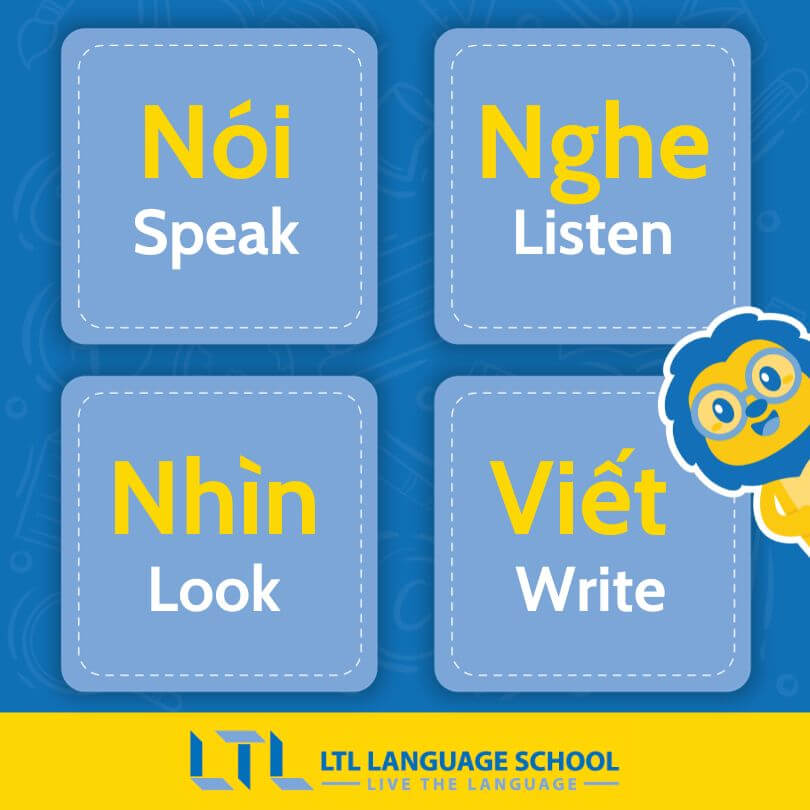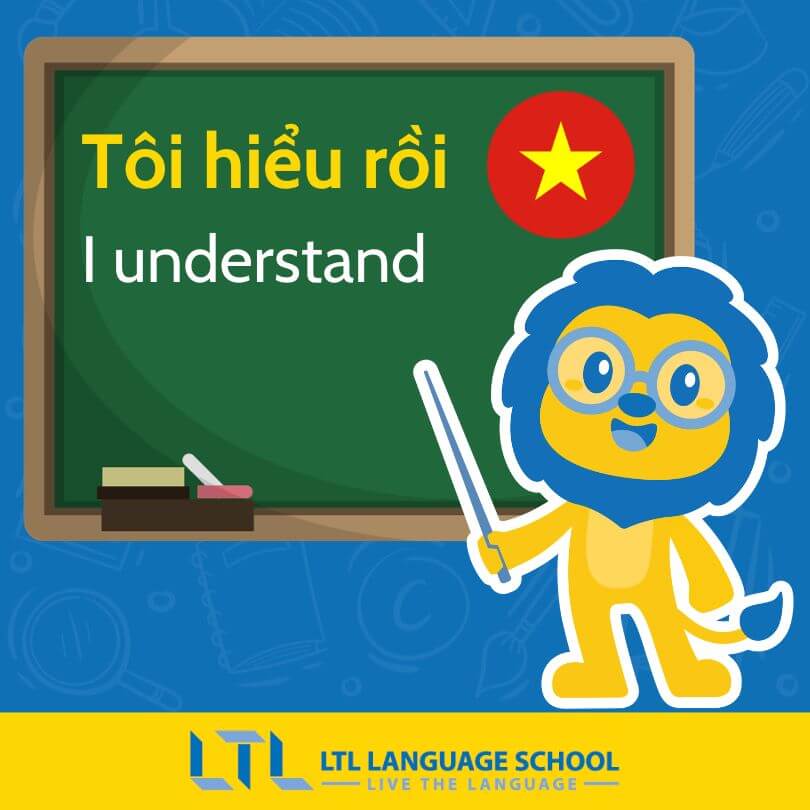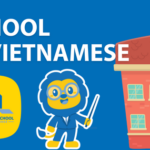Vietnamese Classroom Essentials || Must-Know Words and Phrases
Questions, Comments and Commands Vietnamese Language Students Need to Know (PLUS Quiz!)

So, you’ve started learning Vietnamese?
If you’re not already overwhelmed by learning the Vietnamese alphabet and phrases like hello in Vietnamese, classroom interactions can really stress you out in the early days.
But fear not! Understanding teacher instructions and asking for help doesn’t need to be difficult.
In this blog we’ve put together a list of useful words and phrases to help you navigate the Vietnamese classroom like a pro.
Vietnamese Classroom Phrases || Greetings and Politeness
Vietnamese Classroom Phrases || Classroom Instructions
Vietnamese Classroom Phrases || Asking Questions and Making Requests
Vietnamese Classroom Phrases || Expressing Understanding and Not Understanding
Vietnamese Classroom Phrases || Classroom Interaction
Vietnamese Classroom Phrases || Teacher Feedback
Vietnamese Classroom Phrases || BONUS Quiz!
Vietnamese Classroom Phrases || FAQs
Vietnamese Classroom Phrases || Greetings and Politeness

As the old saying goes, manners cost nothing!
It’s great to learn a few polite phrases to set a friendly, respectful tone in the classroom.
Not to mention, these phrases are also essential for Vietnamese interactions in daily life and building up a good rapport with Vietnamese people.
Note: teachers’ pronouns: cô – female teacher; thầy – male teacher
students’ pronouns: em (most of the time) or anh/chị or your name.
| English | Vietnamese |
|---|---|
| Hello | Xin chào Chào em/anh/chị (pronouns) Chào *name* |
| Thank you | Cảm ơn (cô/thầy/em) |
| You’re welcome | Không có gì |
| Sorry | Xin lỗi |
| It’s okay | không có gì |
| Please* | Vui lòng / Làm ơn |
Vietnamese Classroom Phrases || Classroom Instructions

When learning Vietnamese, you’re going to practice these four key skills:
- Speaking
- Listening
- Reading
- Writing
And in order to improve these skills, your teacher will ask you to engage in a range of targeted activities.
Inevitably, you’ll be asked to ‘listen’, ‘look’, ‘speak’ and ‘write’ in order to complete language tasks, as well as more complex tasks such as matching words and finishing sentences.
Here’s our list of must-know instructions for your Vietnamese classes:
| English | Vietnamese |
|---|---|
| Sit down | Ngồi xuống |
| Stand up | Đứng lên |
| Listen | Nghe |
| Speak | Nói |
| Look | Nhìn |
| Read | Đọc |
| Write | Viết |
| Complete | Hoàn thành |
| Read this line | Đọc dòng này |
| Repeat after me | Lặp lại theo tôi |
| Match these words | Kết nối những từ này |
| Finish the sentences | Hoàn thành các câu (sau) |
| Let’s do roleplay; Roleplay as… | Hãy cùng đóng vai nào; đóng vai làm… |

Vietnamese Measure Words // What Are They & How To Use Them
Vietnamese Measure Words // A complete guide to the most common and frequently used measure words. Level up your Vietnamese with these.
Vietnamese Classroom Phrases || Asking Questions and Making Requests

There’s no such thing as a bad question – especially in your target language!
In a Vietnamese classroom, asking questions is super important for learning and clarifying doubts.
It also helps to be able to make requests such as asking someone to repeat themselves or speak a little slower – which is useful in and out the classroom.
Here’s our list of need-to-know questions and requests for the classroom:
| English | Vietnamese |
|---|---|
| What is this? | Cái này là gì? |
| What is that? | Cái đó là gì? ; Cái đấy là gì? |
| How do I do this? | Cái này làm sao? |
| Could you repeat that? | Bạn có thể lặp lại không? |
| Can you speak slowly? | Bạn có thể nói chậm lại không? |
| Teacher, please explain this | (Cô/thầy) giải thích giúp em |
| How do I read this? | Đọc cái này như thế nào? |
| What’s the pronunciation for this word? | Cách phát âm của từ này là gì? |
| What does X mean in Vietnamese? | X có nghĩa là gì trong tiếng Việt? |
| What does X mean in English? | X có nghĩa là gì trong tiếng Anh? |
| This word consists of two parts. What’s their meaning when used separately? | Từ này gồm hai phần. Ý nghĩa của chúng khi sử dụng riêng lẻ là gì? |
| Can we go to the next / previous page? | Chúng ta có thể sang (move on)/ quay lại (move back) trang tiếp theo / trang trước không? |
BONUS || Visit our Vietnamese Grammar Bank for free language lessons!
Vietnamese Classroom Phrases || Expressing Understanding
When you grasp a concept or idea, it’s essential to express your understanding to the teacher and your classmates.
If you do understand something, your teacher will be happy to move on or let you practice. Equally, if you don’t understand something, your teacher needs to know so that they can explain the word or phrase again.
These phrases should have you covered:
| English | Vietnamese |
|---|---|
| I understand | Tôi hiểu rồi |
| I don’t understand | Tôi không hiểu |
| I know | Tôi biết |
| I don’t know | Tôi không biết |
| I can do it | Tôi có thể làm được |
| I already know that topic | Tôi đã biết chủ đề đó |
| I already learned it | Tôi đã học |
| I haven’t learned it yet | Tôi chưa học |
| I will learn it | Tôi sẽ học |


What have you found most challenging about learning Vietnamese? Let us know in the comments!
Vietnamese Classroom Phrases || Classroom Interaction
In a Vietnamese classroom, you’ll often engage in discussions, group work, or peer-to-peer interactions.
This might mean expressing agreement or disagreement with your classmates, or simply letting your teacher know you’ve finished.
Here are some phrases to help you participate effectively:
| English | Vietnamese |
|---|---|
| I agree | Tôi đồng ý |
| I disagree | Tôi không đồng tình |
| I have a question | Tôi có (một) câu hỏi |
| Let me think about it (a bit) | Để tôi nghĩ (một tí) |
| I finished the task | Tôi đã làm xong bài tập |
Vietnamese Classroom Phrases || Teacher Feedback
A little encouragement goes a long way and your teachers are going to want to give you plenty of praise when you nail your Vietnamese!
It’s also super important to know when you’ve got something incorrect so you can try the task again.
| English | Vietnamese |
|---|---|
| Great | Tuyệt vời |
| Very good | (Rất) tốt! |
| Excellent | Xuất sắc! |
| That’s incorrect | Sai rồi |
| Try again | Hãy thử lại |



School in Vietnamese || 112 Words to Boost Your Vocabulary
Talk about your school, introduce your favourite subject and tell what’s in your pencil case with new words to help you improve your speaking skills.
And there you have it!
Learning common classroom phrases in Vietnamese not only enhances your language skills but also facilitates a smoother and more enjoyable learning experience.
These phrases will help you build rapport with your teachers and peers, participate actively in class, and express your thoughts and ideas effectively.
Chúc bạn học thật tốt! (Good luck with your studies!)
Calling all polyglots: make sure to check out our Classroom Phrases in Chinese too!
Vietnamese Classroom Phrases || Quiz
Practice makes perfect, so before you go, give this quiz a try to see how much you’ve learned!
Vietnamese Classroom Phrases || FAQs
How do you say “hello” in Vietnamese?
In Vietnamese, hello is “Xin chào“.
Alternatively, you could say “Chào [name]“.
How do you say “I don’t know” in Vietnamese?
“Tôi không biết” is how to say “I don’t know” in Vietnamese.
How do you say “thank you” in Vietnamese?
In Vietnamese, “Thank you” is “Cảm ơn“.
How do you say “I agree” and “I disagree” in Vietnamese?
In Vietnamese, “I agree” is “Tôi đồng ý” and “I disagree” is “Tôi không đồng tình“
How can I improve my Vietnamese?
Practice makes perfect and there’s no better way to practice than with our certified, native speaker teachers on our Flexi Classes platform, where you can choose classes that work around your schedule.
If you’d like to really fast track your Vietnamese, why not sign up to one of our homestay programs in Vietnam, where you can not only take classes every day at our school, but also live and eat with a local family!
Where to learn Vietnamese for free?
Visit our Vietnamese Grammar Bank for free language lessons 🙂
For studying Vietnamese in Vietnam with professional teachers, make sure to have a look at our programs in Saigon and Hanoi, or contact us to start planning!
Want More From LTL?
FANCY LEARNING VIETNAMESE? We know you’ll love our top-rated online Vietnamese courses. We offer a 7-day free trial to all new online students where you can study 24/7.
What’s more – we even offer Vietnamese courses in Vietnam too. Check out our small group classes for Vietnamese or our individual programs.
Come and be a part of our amazing community!









